In this article:
Caring for black hair requires special attention. Black hair has a special arrangement of follicles and flat hair shafts, making it more prone to breakage than other hair types. (1)(2)
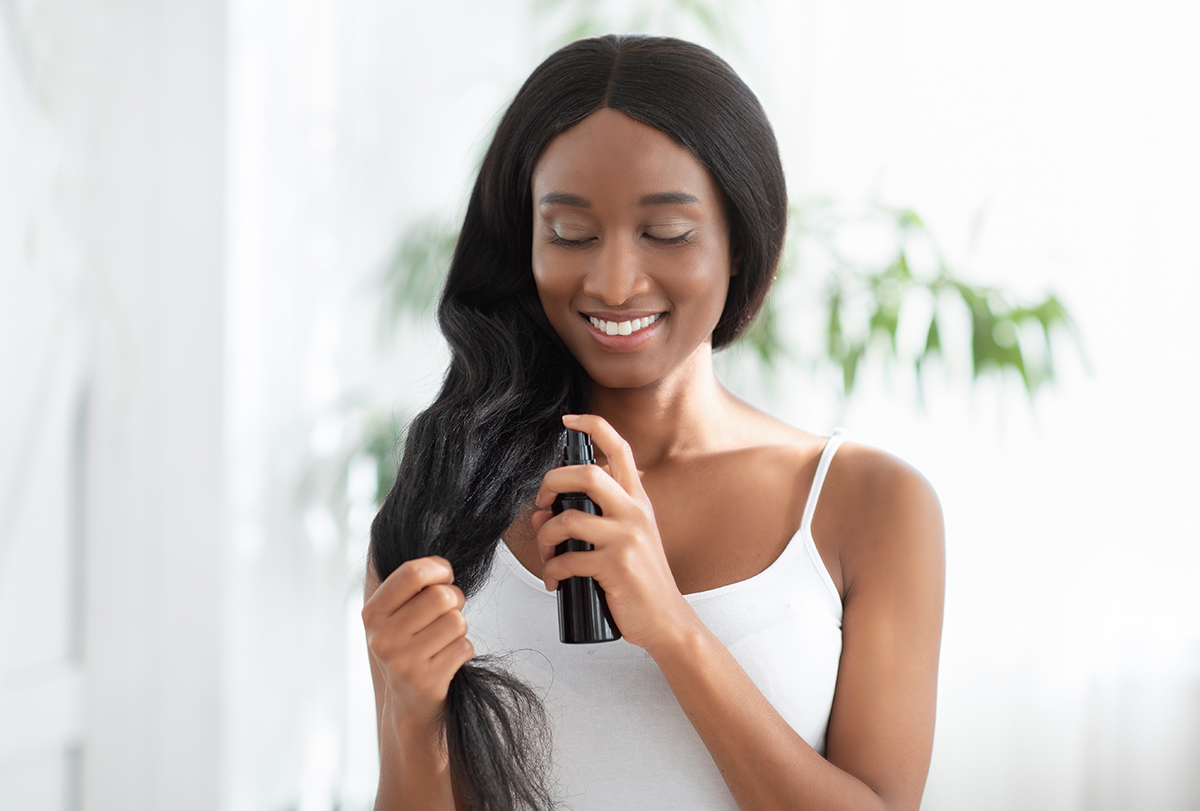
Also, while straight hair often looks naturally hydrated and shiny, black hair tends to be drier. The natural oils produced by the scalp struggle to steer through the twists and turns of coarse and black hair strands, leading to issues such as dryness. (1)(3)
This is why scalp oiling is not just an option for black hair – it’s a necessity. From combating dryness and preventing knots to strengthening brittle strands and supporting healthy hair growth, scalp oils are amazing for black hair. (1)(4)
But how often should you oil your scalp to keep your black hair healthy and vibrant? Most experts suggest scalp oiling twice a week in those with black hair, but this varies based on many factors.
This article will provide you with clear explanations and useful advice on scalp oiling to help you achieve the best results for your black hair.
How Often to Oil Scalp with Black Hair?
There is no fixed number of days of scalp oiling if you have black hair. The best way to know is through the hit-and-trial method, where you observe how much oiling suits your hair best.
However, many experts have shared their recommendations for oiling scalp with black hair. Some say that oiling twice a week is the safest bet, whereas others, such as the experts from the American Academy of Dermatology Association, suggest hot oil treatments twice a month. (5)
In general, oiling frequency is based on scalp type. Whether you have an oily or dry scalp is an important factor in deciding how often your scalp needs oiling.
If you have a very oily scalp, oiling very frequently or even every week can be a bad idea. So, in such a case, oiling once or twice a month based on your hair requirement is the way to go.
However, most of the time, people with black hair tend to have a drier scalp. (1)(3) And if that is the case for you, then you should perform oiling biweekly and do intense hot oil treatments once or twice a month too.
When Should You Not Oil Your Scalp?
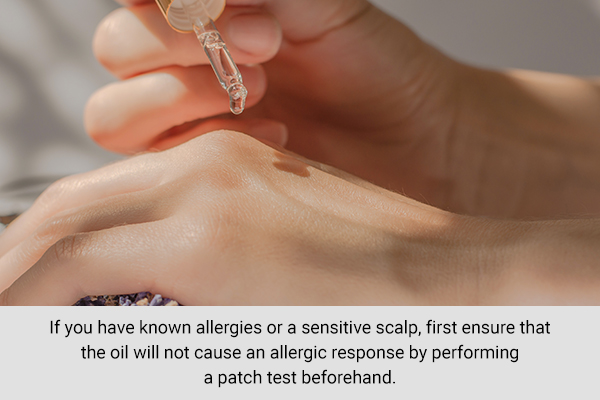
Although scalp oiling is highly beneficial for black hair, it is important to know that dermatologists advise against the use of oil in certain cases:
- If you have a scalp infection, it is better to first consult a doctor and find out what’s going on before you oil your scalp as sometimes oils can aggravate such a problem.
- If you have known allergies or a sensitive scalp, first ensure that the oil will not cause an allergic response by performing a patch test beforehand.
- If you have a very flaky scalp with uncontrolled dandruff, seek a doctor’s advice before oiling your scalp.
- If you have planned a chemical hair treatment, avoid oiling immediately before or after the treatment.
- If you’re using topical medicines on the scalp, talk to a doctor before using oil on the scalp at the same time.
Best Hair Oils for Black Hair
Here are some top oil options that work well for black hair.
1. Coconut Oil
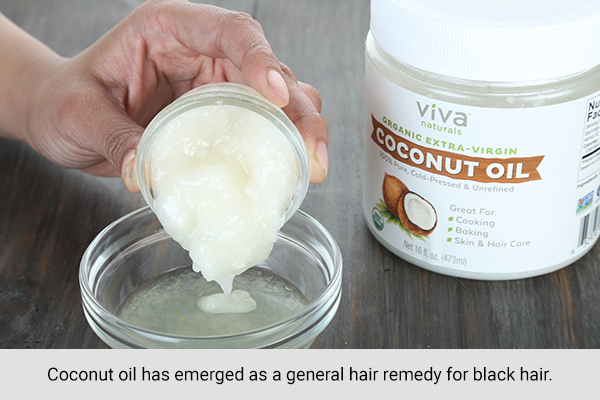
Coconut oil has emerged as a general hair remedy for black hair. Its exceptional moisturizing qualities give it the title of a hydration healer.
What truly sets it apart is its easy absorption into the scalp, ensuring effective nourishment. (6)(7)
2. Argan Oil
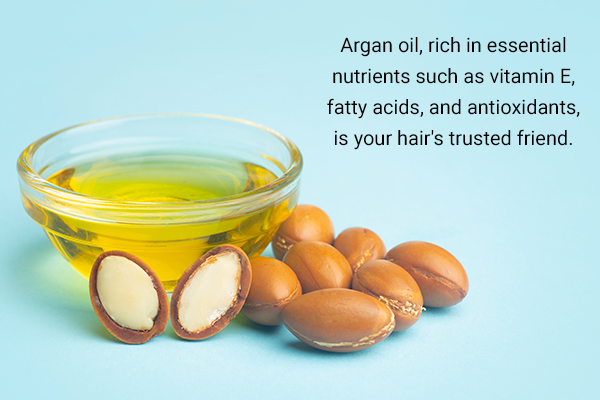
Argan oil, rich in essential nutrients such as vitamin E, fatty acids, and antioxidants, is your hair’s trusted friend. Its unique chemical makeup makes it an amazing ingredient for hydrating and nourishing the hair. (8)(9)(10)
Research has shown its potential to keep off fraying, which commonly occurs in black hair, and to protect hair from harm.
3. Castor Oil
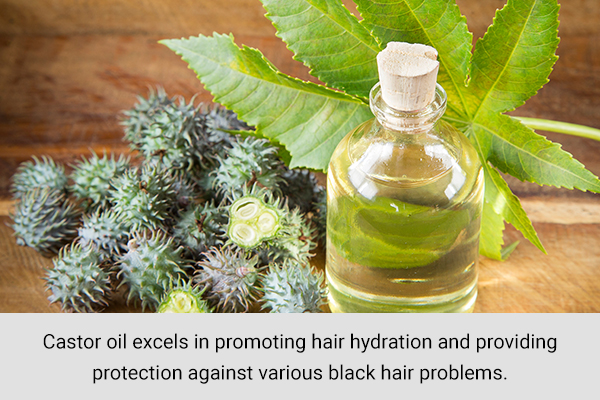
Castor oil is another exceptional choice for caring for your hair. It excels in promoting hair hydration and providing protection against various black hair problems.
Dermatologists even praise it for taming frizz. (11)(12)
4. Olive Oil
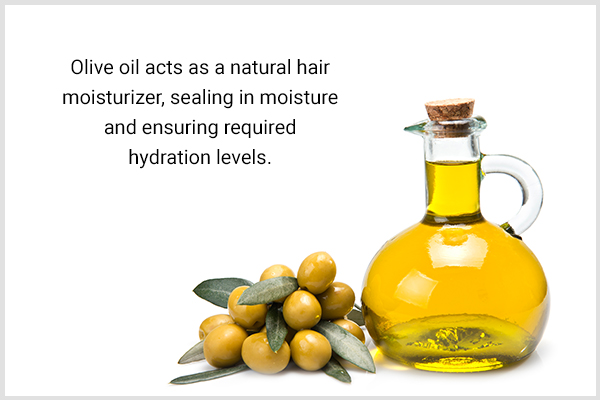
Olive oil acts as a natural hair moisturizer, sealing in moisture and ensuring required hydration levels. Its moisturizing action not only smoothens hair but also enhances hair elasticity. (13)
5. Tea Tree Oil
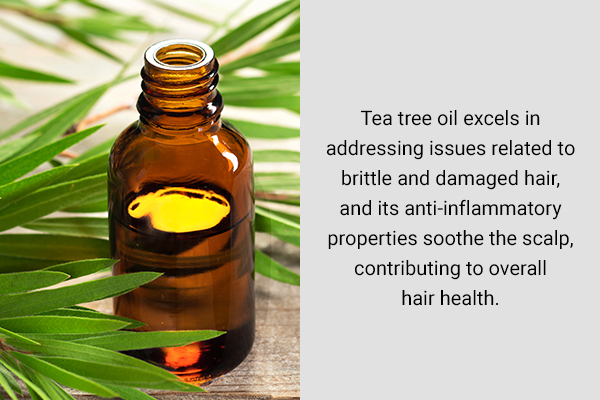
Hydration is the secret to keeping black hair healthy, and tea tree oil is a champion in this aspect.
It excels in addressing issues related to brittle and damaged hair. Furthermore, its anti-inflammatory properties soothe the scalp, contributing to overall hair health. (14)(15)
Most-Asked Questions
Should I oil my scalp daily if I have black hair?
No, even if you have black hair, daily scalp oiling is not recommended.
What can I use for black hair health instead of oils?
If you do not feel like oiling on some days, you can nourish your hair with aloe vera gel.
Final Word
Oiling your scalp is a valuable practice for maintaining the health and vitality of black hair. The frequency of scalp oiling depends on your individual needs, with weekly, biweekly, and monthly routines being common choices.
- Was this article helpful?
- YES, THANKS!NOT REALLY


